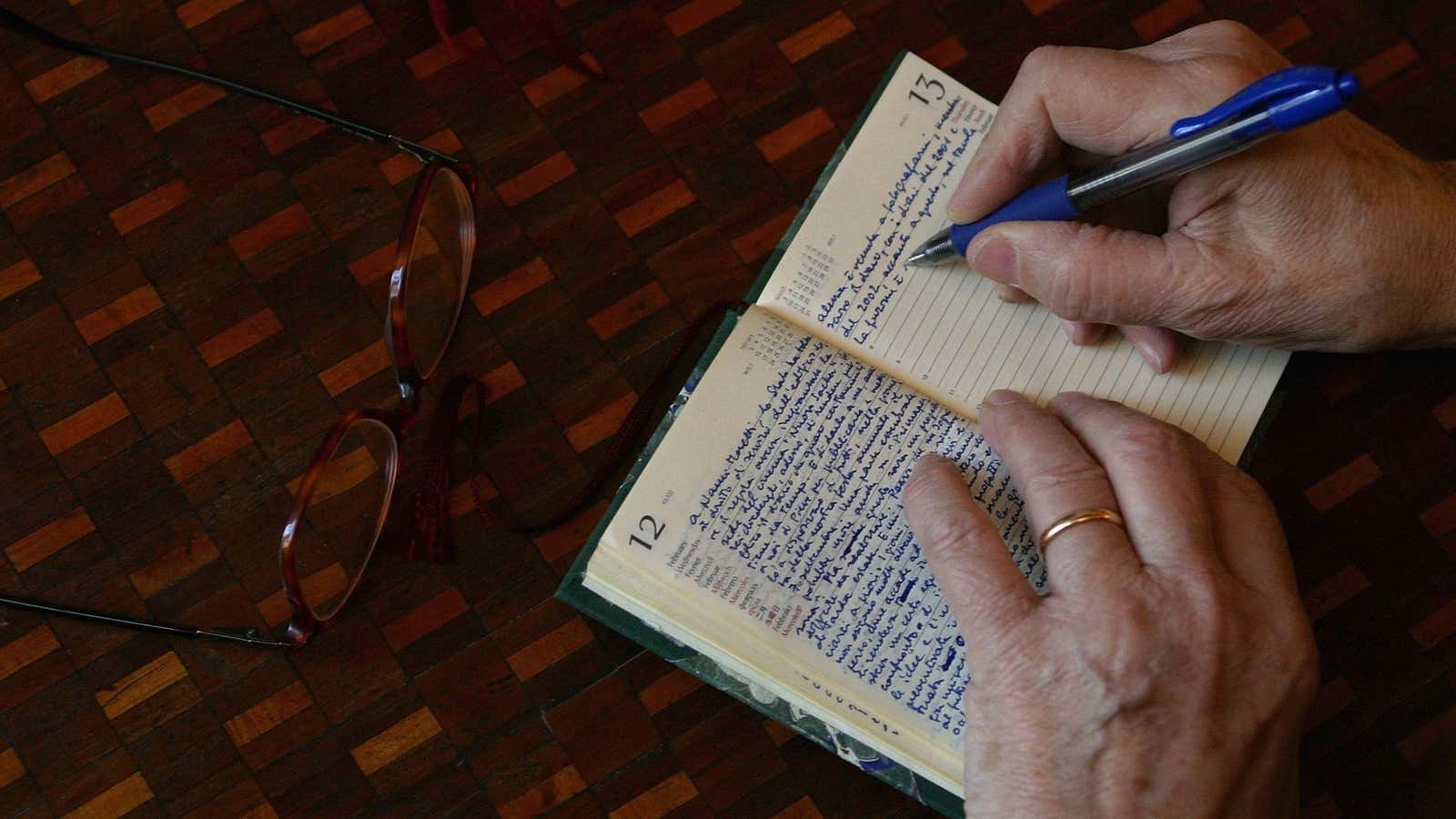Countless studies support the benefits of a deliberate gratitude practice. But like other potent interventions for increasing well-being, the practice of gratitude is complicated. It does not induce sunshine and rainbows in every context, and—especially when there’s pressure to “be grateful”—it can even undermine happiness.
Why now?
Isn’t this the worst time of year to discount gratitude practice? Well, as coaches (Sarah is a psychotherapist, and Andrew is a researcher), we are keenly aware of the spike in depression and anxiety around the holidays. Feeling grateful is just about always positive. But when we are feeling down, the act of trying to feel grateful, or being told we “should” feel grateful, often has the opposite effect.
The gratitude dialectic
Here are two seemingly opposing truths about intentionally practicing gratitude:
- The link between practicing gratitude and overall well-being is well-established through decades of rigorous research. In one landmark investigation of gratitude, for instance, researchers Dr. Robert Emmons and Dr. Michael McCullough found that even the most simple gratitude practices, such as keeping a gratitude journal or writing and then delivering a letter to someone who you feel you have never properly thanked, can lead to significant increases in happiness.
- In certain contexts, practicing gratitude can diminish well-being.
When gratitude grates
Here are four factors that can transform gratitude into a trigger for unhappiness:
Gratitude pushing
Not only do people cringe at being told what to do, sometimes people do not want to hear how lucky they are, because it feels dismissive of the effort behind their achievements. As Cornell researcher Dr. Tom Gilovich shared on the podcast Freakonomics:
If you tell people how lucky they are, they don’t like that. They guard against it. They’re like, ‘Wait. Who are you? You’re diminishing my achievements.’ But if you ask people, ‘How has luck played a role in your life?’ People can get in touch with their tailwinds, or how lucky they are. So it really suggests an ask-don’t-tell policy when it comes to either luck or [a] particular type of tailwind
Social comparison
There’s a lot of truth in Theodore Roosevelt’s oft-quoted, “comparison is the thief of joy.” But ceasing comparison is easier said than done. A prompt toward gratitude, whether we like it or not, can trigger social comparison, quickly cutting down any feeling that you have a lot to be thankful for.
Culture
One study on the cross-cultural impacts of gratitude found that for people from more collectivistic (vs individualistic) societies, gratitude practices may simultaneously induce feelings of indebtedness and guilt.
State of mind
Research suggests gratitude exercises may trigger the “inner critic” in individuals experiencing anxiety or depression. In a 2017 analysis, researchers found individuals with symptoms of depression sometimes felt indebted, guilty, or “like a failure” when they were not able to find something to be grateful for. Those who did list something they were grateful for were also prone to the “dark side of gratitude.” For instance, upon recalling a time when they received generous financial support, a participant shared, “I felt happy because it relieved some pressure on us, but I was also ashamed because I had to ask for help.”
Three practices to try instead
If you find yourself wanting to throw your gratitude journal in the blazing hearth this season, now you can at least know you are not alone. Here are three practices to try instead that are fit for gratitude evangelists and skeptics alike.
- Imagine your life without something important. In a series of carefully designed experiments, UC Berkeley Professor Dr. Laura Kray and colleagues realized that asking people to imagine how their lives would look if a critical past turning point had never happened (e.g., meeting their spouse, getting accepted into college/university) lead to an increased sense of meaning and appreciation for what they had. This practice, also known as mental subtraction, helps us pause for a moment, bolsters feelings that life has been meaningful, and creates a deep sense of appreciation. Rather than succumbing to the pitfall of comparing our bounty to someone who (seemingly) has more than us, in mental subtraction, we intentionally compare our current selves with an imagined version of ourselves who has less.
- Simplify. Instead of forcing yourself to write down three things you are grateful for every single day, adjust your routine to take the pressure off. You could choose to change the exercise so that you are only writing in your gratitude journal once a week instead of daily. If you are feeling guilty or indebted to others when writing in a gratitude journal, you could instead only write about practical or circumstantial things you are grateful for (e.g., how lucky it was that you were born in the first place or that you have a moment to just pause and take a breath).
- Skip Gratitude, practice kindness. Skip gratitude altogether and try another proven happiness-boosting activity such as practicing simple acts of kindness. Purposefully seeking to do simple acts of kindness, such as taking time to help an elderly neighbor, letting someone cut in front of you in traffic, or helping a co-worker who is behind on a project, lead to increased well-being because it literally feels good (it causes the release of naturally happiness-supporting chemicals oxytocin and dopamine). Acts of kindness can also promote bonds between you and the people you are nice to. This is one of the most foolproof ways leaders can make a difference. Pave the way for helping your people practice kindness. Offer paid volunteer days, publicly praise acts of kindness, or, try what we do at BetterUp: Give each employee a budget for making an end-of-year donation to a non-profit of their choice.
